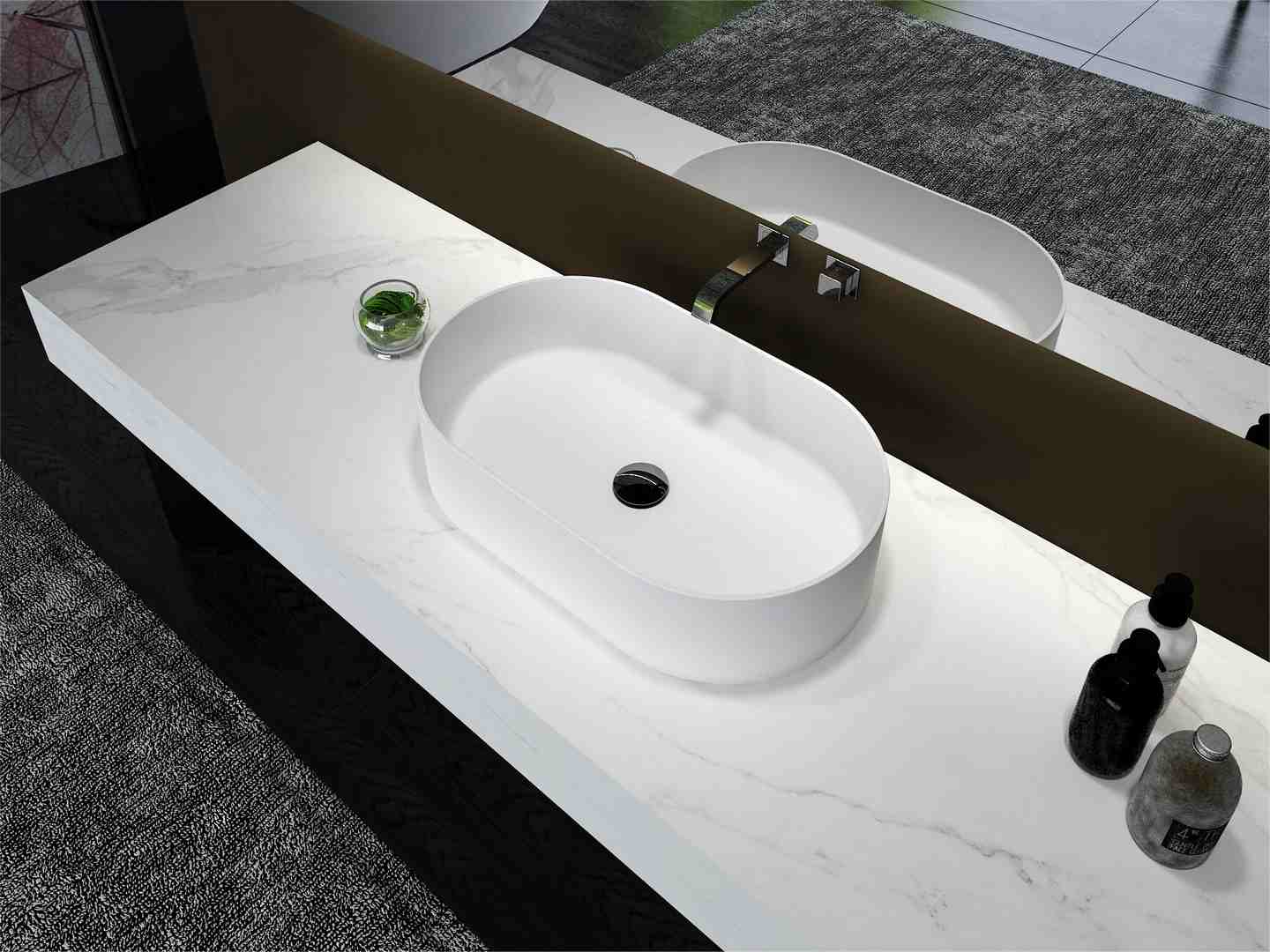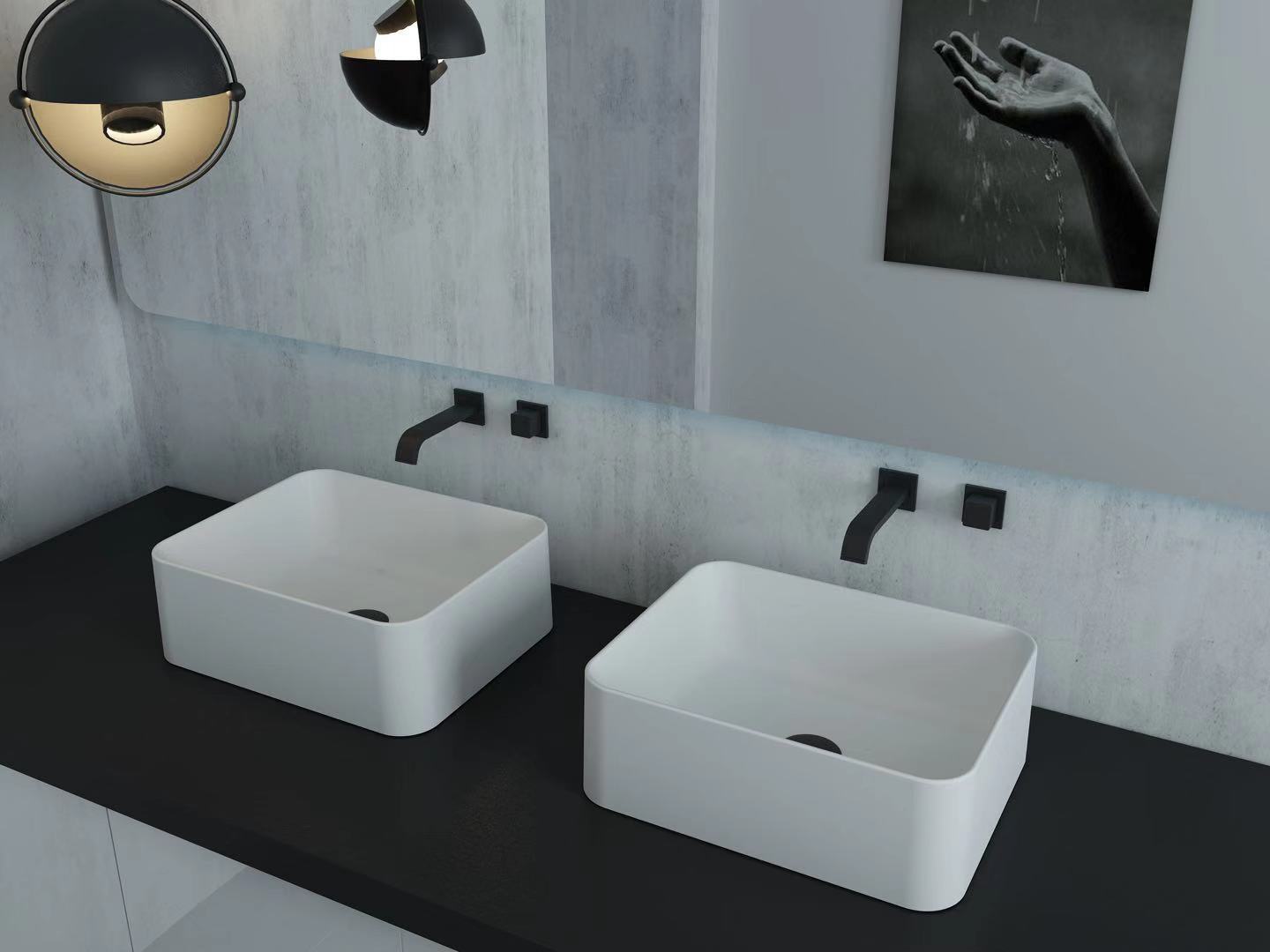Detail to choose toilet basin size
Introduction
In the basin design in bathroom, the significance of selecting the right toilet basin size cannot be overstated.
Whether you're embarking on a new project or contemplating a bathroom upgrade, understanding the nuances of toilet basin size is pivotal to achieving both functionality and aesthetic appeal.
This article seeks to be your comprehensive guide to toilet basin size, offering valuable insights into crucial aspects that often perplex homeowners and designers alike.
From unraveling the standard dimensions of a toilet wash basin to deciphering the myriad options available, we promise to provide clarity and direction.
We will delve into the standard size considerations, assisting you in determining how big your bathroom basin should be.
Uncover the diverse range of basin sizes prevalent in the market and gain insights into the selection process.
By the end, you will be equipped with the knowledge to make informed decisions, ensuring the perfect match between your bathroom space and the ideal toilet basin size.
Let’s embark on this journey of exploration and enlightenment in the world of toilet basin wholesale.

1)What is the Standard Size of a Toilet Wash Basin
The backbone of any well-designed bathroom, the standard toilet wash basin comes in various sizes to cater to diverse preferences and spatial constraints.
The Standard Wash Basin:
For those with limited space, small wash basins measuring 15" - 20" in length, 9" - 12" in width, and with a depth of 5¾" - 7" are the go-to choice. Stepping up in size, the medium category ranges from 20" - 30" in length, 19" - 24" in width, and maintains a standard depth of about 7". If spaciousness is the priority, large wash basins spanning 30" - 50" in length, 19" - 24" in width, and with a depth of about 5" are the optimal selection.
The Standard Dimensions:
For the conventional rectangular basin, the width typically varies from 16 to 20 inches (40 to 51 centimeters), while the depth ranges from 14 to 20 inches (36 to 51 centimeters). The height, a crucial consideration, usually falls within the range of 32 to 36 inches (81 to 91 centimeters).
Round Washbasin:
Circular basins, an aesthetic alternative, come in standard diameters ranging from 14 inches (35 cm) to 20 inches (51 cm). Compact bathrooms favor smaller sizes, while larger diameters find their place in more spacious environments.
Depth Considerations:
The depth of a round sink typically spans 5 to 8 inches (13 to 20 cm), offering flexibility based on design and usage.
Understanding the standard size of a toilet wash basin is the first step towards crafting a bathroom that seamlessly merges form with functionality. Stay tuned for further insights into optimizing your bathroom basin size.

2)How Big Should My Bathroom Basin Be
Selecting the right bathroom basin size is a pivotal decision influenced by the available space and your design preferences.
Small Bathrooms:
In compact spaces, opt for a compact sink basin ranging from 14 to 18 inches (35 to 46 cm) in diameter.
Consider wall-mounted or corner sinks to maximize space efficiency without compromising style.
Medium-sized Bathrooms:
For medium-sized bathrooms, a standard-sized sink with a diameter of 18 to 24 inches (46 to 61 cm) strikes a balance between functionality and aesthetics.
Explore options like pedestal or vanity sinks with built-in storage to enhance practicality.
Large Bathrooms:
In more expansive bathrooms, embrace larger sinks with diameters exceeding 24 inches (61 cm).
The flexibility of these spaces allows for the inclusion of double sinks or wide countertop basins, offering a touch of luxury and convenience.
Master Bathrooms:
Master bathrooms, with their ample space, offer customization opportunities.
Tailor your basin size based on personal preferences, considering larger or more luxurious sinks.
Elevate the aesthetic with features like double sinks, stylish vanities, or eye-catching vessel sinks for a truly upscale look.

3) What Are the Different Sizes of Basins
Pedestal Basins |
|
Width | Typically spans 22 to 36 inches (56 to 91 cm) |
Depth | Approximately 18 to 24 inches (46 to 61 cm) |
| Pedestal basins, with a basin mounted on a supportive base, are favored for traditional or classic bathroom designs. |
|
|
Wall-Mounted Basins |
|
Width | Ranges from 16 to 24 inches (41 to 61 cm) |
Depth | Varies between 10 to 20 inches (25 to 51 cm) |
| Fixed directly to the wall without a base, wall-mounted basins are ideal for small bathrooms or modern design schemes. |
|
|
Countertop Basins |
|
Diameter | Typically between 14 to 20 inches (36 to 51 cm) |
Depth | Ranges from 5 to 8 inches (13 to 20 cm) |
| Sitting atop a vanity or countertop, these basins offer a modern and customizable aesthetic, available in various shapes such as round, oval, square, and rectangular. |
|
|
Undercounter Basins |
|
Width | Ranges from 16 to 24 inches (41 to 61 cm) |
Depth | Typically 6 to 10 inches (15 to 25 cm) |
| Installed beneath the countertop for a seamless appearance, undercounter basins are often paired with solid surface countertops like granite or quartz. |
|
|
Vessel Basins |
|
Diameter | Commonly between 14 to 20 inches (36 to 51 cm) |
Depth | Ranges from 4 to 8 inches (10 to 20 cm) |
| Similar to countertop basins but designed to resemble freestanding bowls, vessel basins create a bold and stylish focal point by sitting on the countertop. |
|
|
Recessed Basins |
|
Width | Typically spans 16 to 24 inches (41 to 61 cm) |
Depth | Varies between 6 to 8 inches (15 to 20 cm) |
| Recessed basins seamlessly integrate into the countertop, offering a clean and understated look. |
|
|
Understanding the sizes and styles of basins allows for a more informed decision when tailoring your bathroom to your unique taste.
Stay tuned for more insights into optimizing your bathroom basin selection.

3) How Do I Choose a Toilet Basin
Selecting the perfect toilet basin involves a thoughtful consideration of various factors tailored to your bathroom's size, style, and functional requirements.
Bathroom Size |
|
Small Bathrooms | Opt for space-saving options like pedestal sinks, wall-mounted sinks, or compact countertop basins to maximize space in smaller bathrooms or powder rooms. |
Medium to Large Bathrooms | Enjoy greater flexibility in larger bathrooms, allowing for a wider range of basin styles, including pedestal, countertop, undermount, or vessel sinks. |
|
|
Sink Style |
|
Pedestal Basins | Classic and elegant, ideal for traditional and formal bathroom designs. |
Countertop Basins | Provide versatility and style, sitting on top of a vanity or countertop, with options in various shapes and materials for customization. |
|
|
Material and Finish | Consider basin materials such as ceramic, porcelain, glass, or stone. |
|
|
Functionality | Determine the number of basins needed, with single basins common and double basins practical for shared bathrooms. |
|
|
Budget | Establish a budget for your bathroom project and select a basin within that budget, considering variations in prices based on materials, brands, and styles. |
|
|
Maintenance and Cleaning | Evaluate the ease of cleaning and maintenance for the chosen basin, considering materials and finishes resistant to stains and scratches. |
|
|
Design Harmony | Ensure the chosen basin complements the overall design and style of your bathroom, aligning with the color scheme and fixtures. |

5)How High Should Toilet Basin Be
Achieving the ideal height for your toilet basin is crucial for both user comfort and aesthetic harmony in your bathroom space.
Standard Height | The standard height for a bathroom sink typically ranges from 32 to 36 inches (81 to 91 cm). |
|
|
User Comfort | The height of the toilet basin should prioritize user comfort, ensuring ease of use and handwashing without strain. Standard heights are designed to accommodate a diverse range of users. |
|
|
Vanity or Countertop Height | If the basin is mounted on a vanity or countertop, its height may be influenced by the overall height of the vanity. Commonly, countertops or vanities range from 32 to 36 inches high, with the basin mounted on top. |
|
|
Mounting Type | Different basin mounting types, such as wall-mounted or pedestal basins, may have varying height considerations compared to countertop or vessel basins. |
|
|
Local Building Codes | Ensure compliance with local building codes and regulations, as they may specify the height of bathroom fixtures, including basins. |
|
|
User Accessibility | Accessible bathrooms, designed for individuals with disabilities, necessitate adherence to accessible design guidelines. This may involve adjusting basin heights to accommodate specific accessibility requirements, whether lower or higher. |
|
|
Consideration of these factors ensures not only an aesthetically pleasing bathroom but also one that caters to the comfort and needs of its users.
Stay tuned for more insights into optimizing your toilet basin selection and design.

Conclusion
In navigating the realm of toilet basin size, this article has meticulously unraveled key dimensions and considerations crucial for informed decision-making.
From the standard dimensions of small, medium, and large wash basins to the diverse styles encompassing pedestal, wall-mounted, countertop, undercounter, vessel, and recessed basins, we've delved into a comprehensive guide.
The article shed light on the optimal sizing based on bathroom dimensions, user preferences, and design aesthetics.
Choosing the right basin, influenced by factors such as bathroom size, sink style, material, functionality, budget, and maintenance, is integral to crafting a harmonious bathroom space.
Moreover, we emphasized the importance of aligning with local building codes and considerations for accessible bathroom designs.
As the epitome of user-centric design, the conclusion underscores the significance of ergonomics and aesthetics, ensuring that the chosen basin not only fits seamlessly into the space but enhances the overall bathroom experience.
Welcome to know more detailed information about products in Cpingao:
